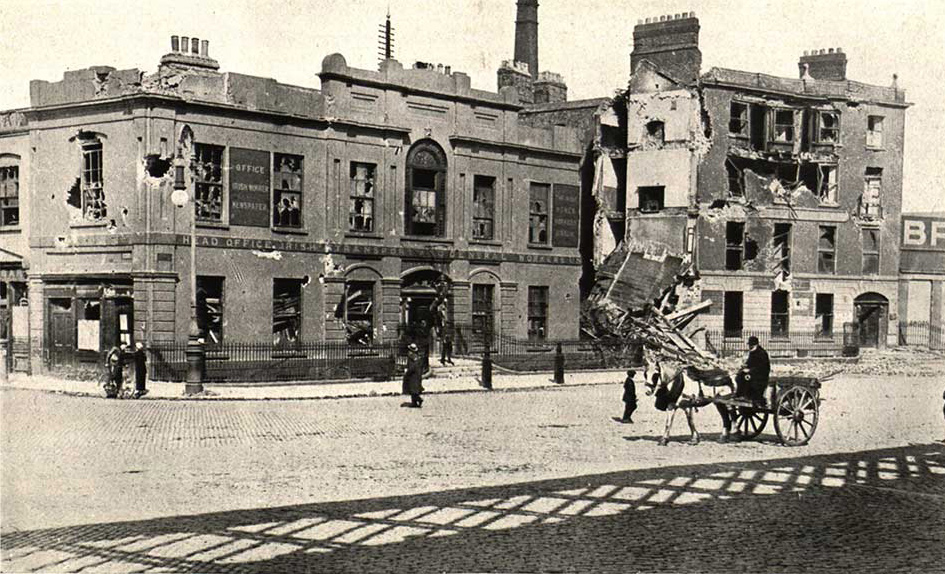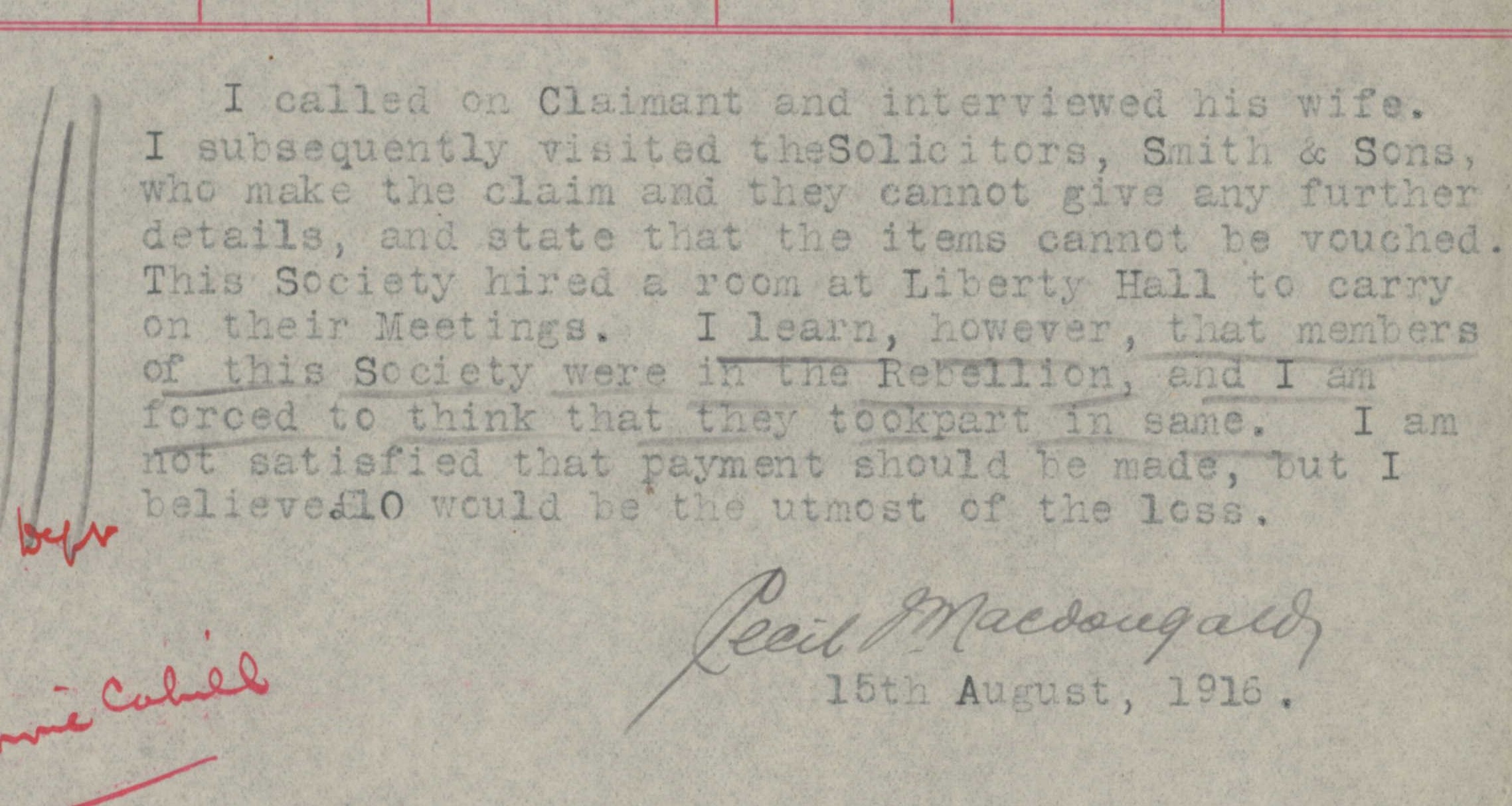
“For many years past, Liberty Hall has been a thorn in the side of the Dublin Police and the Irish Government. It was the centre of social anarchy, the brain of every riot and disturbance.” - Irish Times 1916
During the week of the Easter Rising Liberty Hall was extensively damaged by British artillery. Some months later a number of compensation claims were made relating to the destruction, including one lodged by Walter Carpenter. It was unsuccessful, but quite interesting all the same.

Despite the fact that it was empty, Liberty Hall was considered a prime target by British forces and came under persistent attack, with a clear aim to destroy the building. They failed. While high explosive shells were fired from the Gunboat Helga positioned on the Liffey, the loop line bridge obstructed its trajectory and made the building difficult to strike. A field gun was also positioned at Tara Street which had a clear, unobstructed view of the building, but as it was firing shrapnel rounds its destructive ability was limited. While the building was extensively damaged and much of its interior and contents destroyed, it did not suffer as badly as some adjacent structures. Importantly, it did not catch fire, which would prove to be the real cause of damage elsewhere in the City Centre.
The above opinion of Liberty Hall –“a thorn in the side…”, and “the centre of social anarchy…” etc was not entirely without foundation. The building (formerly a hotel) had been acquired by Jim Larkin and the Irish Transport & General Workers Union (ITGWU) in 1912. As well as being the union headquarters, it also became home to all manner of political, social and workers organisations and initiatives.

One of the groups which would have it’s office here was the Socialist Party of Ireland. James Connolly had returned to Dublin from Belfast to become a full time organiser with the party, alongside East Wall resident Walter Carpenter who was secretary. Confusingly, the party operated under the title of Independent Labour Party (though not affiliated to the British Party of the same name), and it was as the ILP that they acquired a room from Jim Larkin. Many members of the party would be regular speakers at the rallies and demonstrations that took place at Beresford place throughout the era of radicalism that was occurring. In 1911 James Connolly would address a welcome home rally for Walter Carpenter when he was released from Mountjoy Prison, while in 1913 Walter would speak at a similar welcome home for Connolly. On the 16th April of 1916 Carpenters son, also Walter, commanded the Citizen Army Boys outside the building when Molly O’Reilly raised the republican flag. The party was still based here in Easter Week, and their office suffered in the bombardment.
In response to the damages caused during the Rising , the ‘Property Losses(Ireland) Committee ,1916 ‘ was established , to address claims made for “Damages caused during the Disturbances on the 24th April, 1916 , and following days” . Walter Carpenter, acting as secretary to the Independent Labour Party of Ireland lodged their claim for compensation on the 1st August, just three months after the Insurrection.

Details of claim lodged by Walter Carpenter (Image courtesy : National Archives)
The claim was in relation to items from the party offices, and referred to Goods damaged by “reason of the artillery used by His Majestys Troops, breaking and destroying same”. Notable among the damaged and destroyed items was the “Book case with about 300 volumes”.
Unsurprisingly, the claim was rejected. The reasons given were to the point - “This society hired a room at Liberty Hall to carry on their meetings. I learn however that members of this society were in the Rebellion, and I am forced to think they took part in same. I am not satisfied that payment should be made…”

Rejection of compensation claim (Image courtesy: National Archives)
Again, these views were not without foundation. Walter Carpenter was indeed a declared revolutionary, and his sons Wally and Peter had indeed taken part in the rebellion. Both had become volunteers in the Irish Citizen Army at its foundation in 1913 and served as part of the GPO Garrison. While Walter continued his activities as part of the Socialist Party of Ireland, and while pursuing this claim on their behalf, his comrade and friend James Connolly had been executed, and his son Peter was currently residing at Frongoch Internment Camp in Wales.

Irish Citizen Army , roof of Liberty Hall .
For comments , corrections or clarifications contact: eastwallhistory@gmail.com
(Images from Compensation papers : NAI/PLIC/ 4828 . Courtesy National Archives of Ireland , used with permission )







